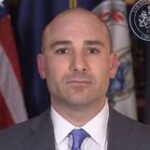by Jim McCarthy
On June 6, 2022, one hundred or more Virginians breathed a sigh of relief that they would not be required to campaign for the House of Delegates in November 2022. A panel of federal judges dismissed a lawsuit challenging the 2021 delegate elections because the voting districts were malapportioned, i.e., the results of the 2010 census were still in play defining the populations of the 100 seats.
Since the 14th century, we have been instructed on the crucial nature of the kingdom that was lost due to the want of a nail. A more contemporary moral is related to the significance of “one person, one vote.” The panel found that the plaintiff failed to demonstrate standing to sue because he had not suffered an injury in fact within the district where he voted as required by the Constitution for a case or controversy.
Reviewing the commonwealth’s population data from the 2010 and 2020 censuses, the panel’s analysis concluded that the plaintiff’s vote in the 2021 election was cast in a district that, in fact, had fewer residents than the “ideal district.” Census figures from 2010 indicated the “ideal district” was 80,000. When the new maps were drawn by the Virginia Supreme Court subsequent to the election, the ideal district was pegged at 86,314. The plaintiff’s district prior to the redistricting was numbered at 79,611 and at 85,344 post redistricting. The chart below outlines the analysis:












